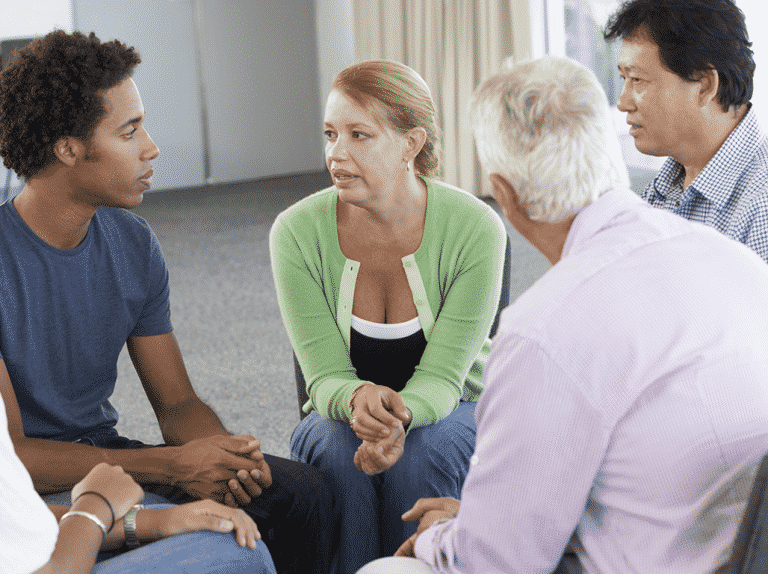My first AA meeting was a shock. Family members of those in recovery don’t often think an AA meeting might be for them, too. As a family member myself, I know the state of panic we feel when when our loved ones start their recovery journey, usually with a 12 Step Program.
The language of the 12 steps doesn’t make sense to us, and we don’t think the family might play a part in what’s happening. So why subject yourself to an AA or Al-anon meeting?
It’s Easier Not To Do The AA Research
As a journalist and mystery writer, I was used to doing research. I knew all about addiction from the law enforcement side. My novels showed the kinds of crimes that could result from substance Use Disorder. When my own loved one became addicted, however, I didn’t do the research. I was an educated person and, I thought, I was a good and caring Mom. I simply couldn’t believe that addiction (think crazy homeless people under the bridge and a lot worse) might happen to someone in my own family. It was unthinkable. I wasn’t attending any meetings to explore how I would feel, or what I would do if it got a lot worse. I just hoped and prayed it wouldn’t.
Addiction Is Scary Recovery Is Too
Addiction is so frightening that a parent or spouse or daughter or son can remain in denial for a long time, even forever.
Family members also tend to think if only their loved ones receive treatment, or stop using, life will return to normal.
The addiction dynamic, however, doesn’t go away simply because someone stops using. The causes and the wreckage of addiction need to be dealt with, too. The family needs to get involved, each in his or her own way.
My 12 Step Research
It was only after my loved ones went into recovery (for maybe the tenth time) that I began my own research and recovery journey. Whether my child recovered or not, this time I needed some help restoring my own life. I started by attending an open AA meeting. I wanted to know what it feels like to give up the thing you love most and then have to live in a world that’s all about drinking. It took me 15 years to be willing to learn.
My First AA Meeting
I didn’t walk into a room full of strangers as I hoped I would. As a local person and a magazine writer, I knew people in that AA church group. They were surprised to see me. I hadn’t told anyone about addiction in my family, and I wasn’t known as a big drinker. What was I doing at AA?
I Called It Research
At that AA meeting I heard some interesting things, and wanted to know more. Wanting to know more is what journalists do. Things always occur to me when I visit prison, or when I attended to civilian police academy, or learned how to shoot a gun. At AA it occurred to me that not drinking myself might give me some more insight into the nature of addiction and sobriety. I also thought my not drinking might create a new bond between me and loved ones who were struggling with substance abuse.
My first AA meeting was an eye-opener
I took a chip to see what it would feel like and made a commitment not to have a martini or a glass of wine—well, maybe not forever, but for three months or so. Call me shallow, I also thought I might lose some weight. For me it was like giving something up for Lent. Except it was in August, and it has lasted for 12 years on August 25, 2020. I wasn’t a heavy drinker, but sobriety opened my eyes to the benefits of a different kind of life. Personal research brought me and my family together and taught us a new way of communicating. I’d say that was a benefit I wasn’t expecting.
My first AA meeting showed me that family members need recovery too
Family members do sometimes attend AA meetings, but many have never been to one. For me, the encounter with AA led to an exploration of Al-Anon. There I learned a lot more about the addiction family dynamic and leading a healthier, happier life. And that’s how my passion for recovery education began. Years ago, I would not have dared to show the faces you see above because the principle of anonymity made coming out a no no. And there was the stigma. But not now. This is what recovery in a family looks like. Some 23 million Americans are in some form of recovery. We love and salute you all.





















